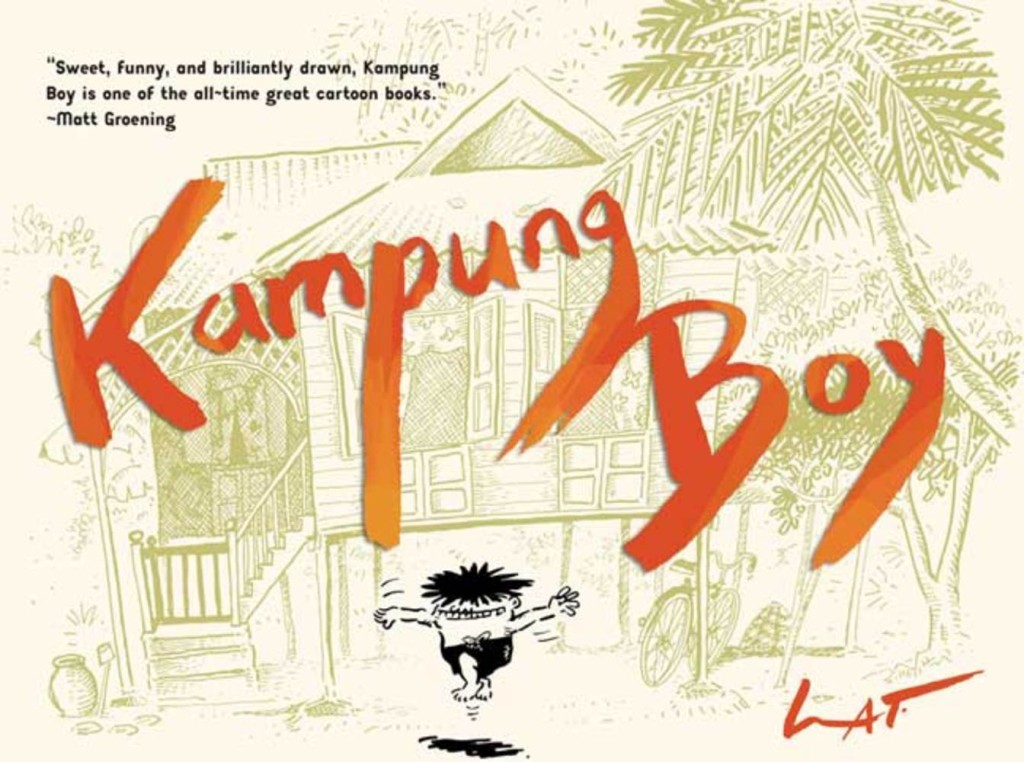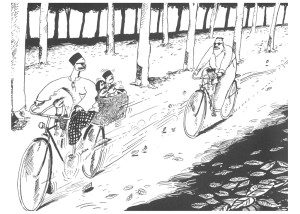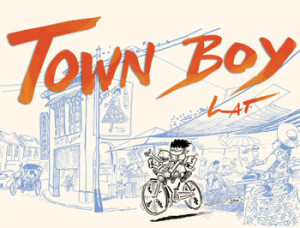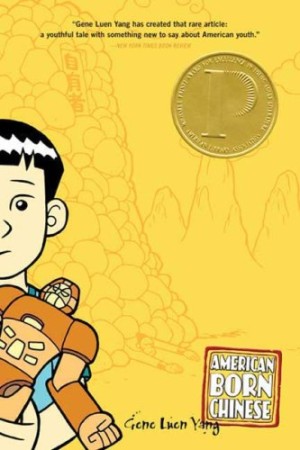Review by Cheng Tju Lim
A modern day classic. Lat is Malaysia’s most famous cartoonist, and he started chronicling the fast disappearing life of the old Malay kampungs (villages) in the 1970s. First published in 1977, Kampung Boy is one of the earliest autobiographical comics and one of the first few long-form graphic novels in the world.
Kampung Boy records the rituals (eg. circumcision) and lifestyle of 1950s rural Malaysia. Its documentary-like perspective focuses on human relationships and social norms, bringing to mind the films of the Japanese director, Yasujiro Ozu. However, this is no anthropological project. The charm of Kampung Boy is its gentle humour and Lat never lets us forget that we are reading a comic, and not an illustrated book.
The humour is exemplified, when Lat writes about his mother’s love, and the accompanying image is of the mom stuffing the baby Lat with porridge – not particularly motherly nor loving. Such contradictions between the words and image in creating a funny juxtaposition make Kampung Boy such a pleasurable read. Other visual delights include young Lat and his friends running towards a stream and up a tree branch before launching themselves into the river. The lead-up to this is four pages of childhood exhilaration.
There is also clever use of ellipsis as many scenes are from a young Lat’s point of view. We do not see the faces of his parents staying up late at night talking about his future, but we can feel the tenderness between parents and child, and this book is dedicated to them.
This landscape book ends with Lat leaving the kampung at the age of 10 to study in the nearby town, leading us into the sequel Town Boy. His grandmother told him not to forget the kampung, and Kampung Boy is his promise to her to always remember his childhood home and days. There is a tinge of sadness in the final pages as Lat boards the bus and waves goodbye to his best pals, the Meor brothers. We know it would be difficult for Lat to return to the kampung as this book hints about the impending progress and how the economic development of Malaysia would eventually erode the kampung life.
Kampung Boy has been translated into French, Chinese and Japanese.






